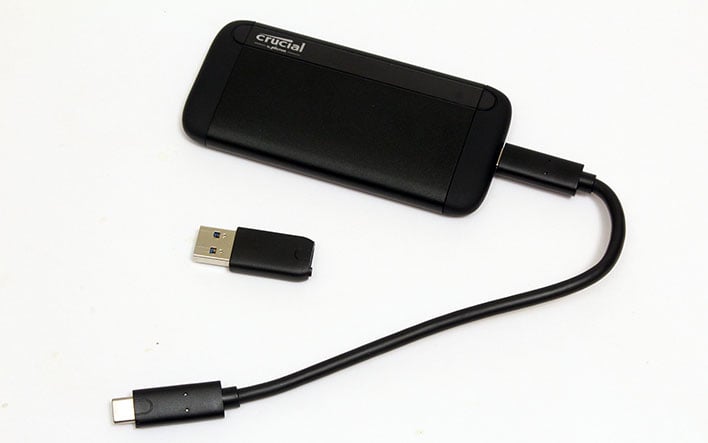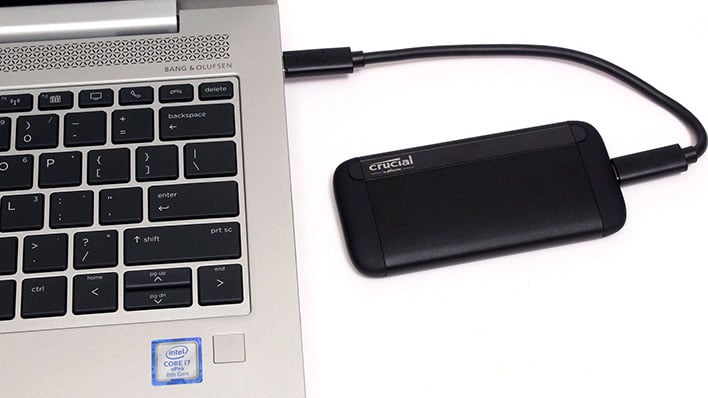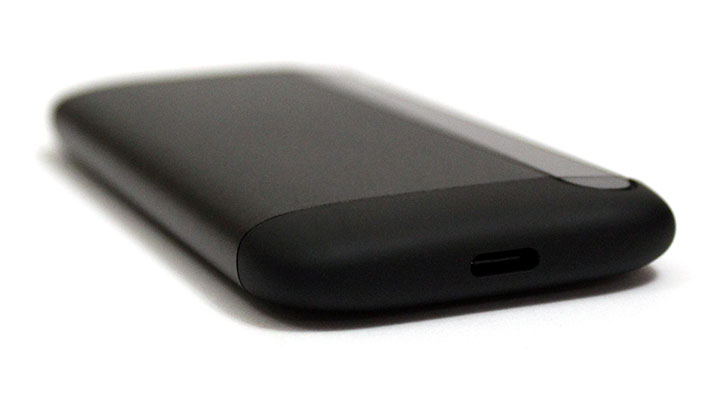Crucial X8 Portable SSD Review: Fast, Value-Priced Storage
The Crucial X8 Portable SSD Is Fast, Durable, And Affordable
The reason we wanted to start with the USB interface is because there's going to be a handful of people out there that assume just because they have a high-end system, they'll be able to use the Crucial X8 portable SSD at it's full potential. In all honesty, there's a chance you may not have that opportunity. There are only a few USB standards that support speeds of up to 1050MB/s (USB 3.2 Gen 2 being one of them) and not all motherboards have these ports. If you're system older it's likely you're going to bottleneck the NVMe SSD on board this external drive, effectively dropping the performance down to speeds of around 480MB/s (SATA speeds), or less. To avoid this make sure you have at least a USB 3.1 Gen 2 port, or a Thunderbolt 3 port. Regardless, for those on newer platforms, this is a serious lift in performance for an external storage option.
Now that we have the USB standard you need out of the way, let's take a look at this drive and see what makes it so fast. First and foremost, the Crucial X8 isn't a copy and paste external SSD with low cost NAND flash memory. Instead it uses high quality Micron NAND flash memory and a NVMe PCIe interface designed for performance. When connected to the right port, the X8 SSD has read and write speeds of up to 1,050MB/s. Meaning it's 1.8 times faster than similar portable SSDs within the same price category, and up to 7.5 times faster than portable hard drives.
You'll find a quick run down of the specifications below...
|
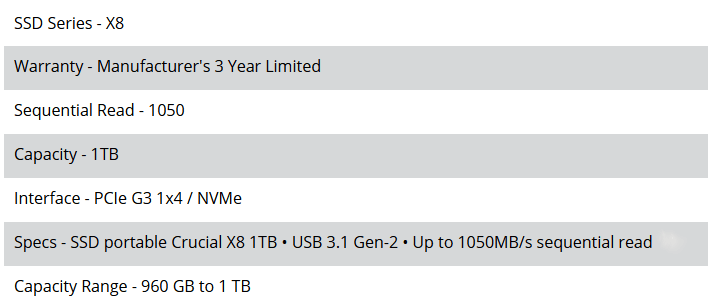 Pricing - $164.95 - Find it at Amazon |
The X8 can be used with a multitude of platforms, including the PC, Mac, PS4, XBOX One, iPad Pro, Chromebooks, and select Android devices via a USB 3.2 Gen2 interface. With support across a vast array of platforms, the X8 can be used as backup storage for your gaming consoles, as a mobile storage device, for portable app installations or even a Steam game library storage device for that matter. It's not going to be as fast as a standard NVMe drive, but it's 400MB/s faster than any drive running on a SATA connection.
Benchmarking The Crucial X8 External SSD
Under each test condition, the Solid State Drives tested here were installed as secondary volumes in our testbed, with a separate drive used for the OS and benchmark installations. Out testbed's motherboard for the internal drives was updated with the latest BIOS available at the time of publication and AHCI (or RAID) mode was enabled.
The SSDs were secure erased prior to testing where applicable, and left blank without partitions for some tests, while others required them to be partitioned and formatted, as is the case with our ATTO and CrystalDiskMark benchmark tests. Windows firewall, automatic updates, and screen savers were all disabled before testing, and Windows Quiet Hours was enabled. In all test runs, we rebooted the system, ensured all temp and prefetch data was purged, waited several minutes for drive activity to settle and for the system to reach an idle state before invoking a test.
|
First up, we have some numbers with SiSoft SANDRA, the the System ANalyzer, Diagnostic and Reporting Assistant. Here, we used the Physical Disk test suite and provide the results from our comparison SSDs. The benchmarks were run on unformatted drives and read and write performance metrics are detailed below.
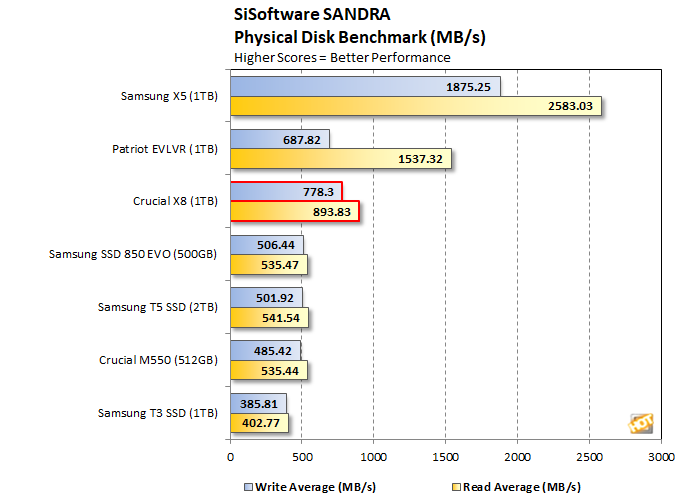
|
ATTO is another "quick and dirty" type of disk benchmark that measures transfer speeds across a specific volume length. It measures raw transfer rates for both reads and writes and graphs them out in an easily interpreted chart. We chose .5kb through 8192kb transfer sizes and a queue depth of 6 over a total max volume length of 256MB. ATTO's workloads are sequential in nature and measure bandwidth, rather than I/O response time, access latency, etc.
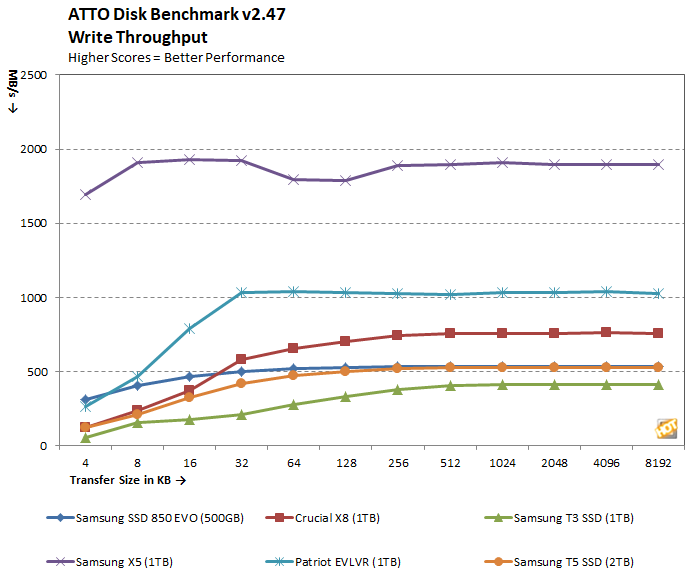
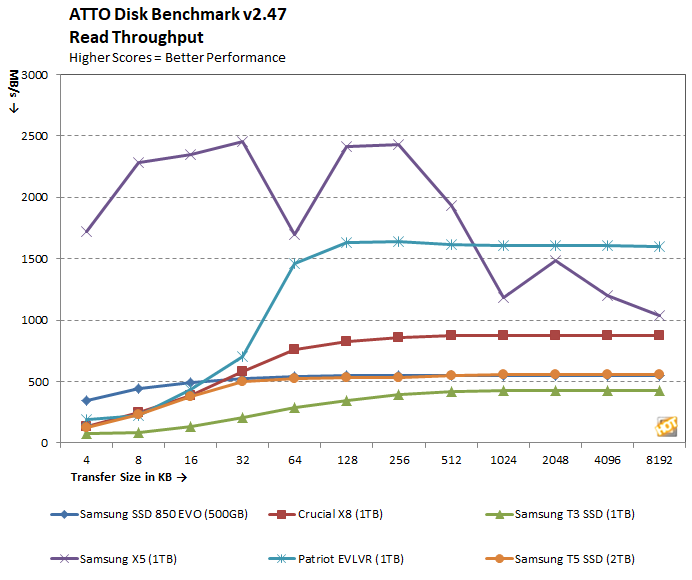
CrystalDiskMark is a synthetic benchmark that tests both sequential and random small and mid-sized file transfers using incompressible data. It provides a quick look at best and worst case scenarios with regard to SSD performance, best case being larger sequential transfers and worse case being small, random transfers.
|
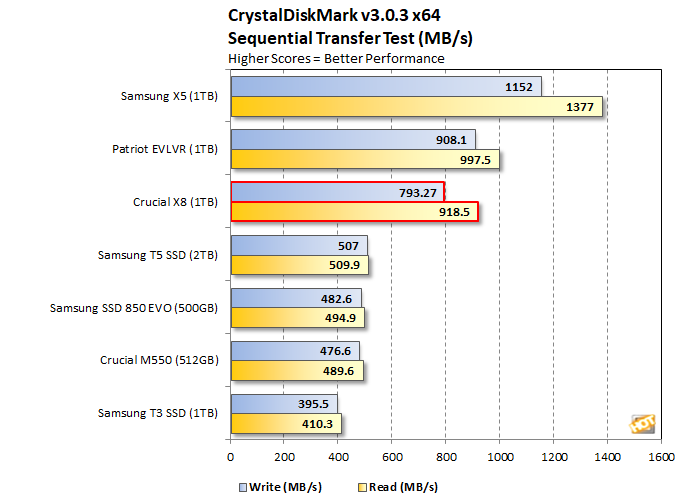
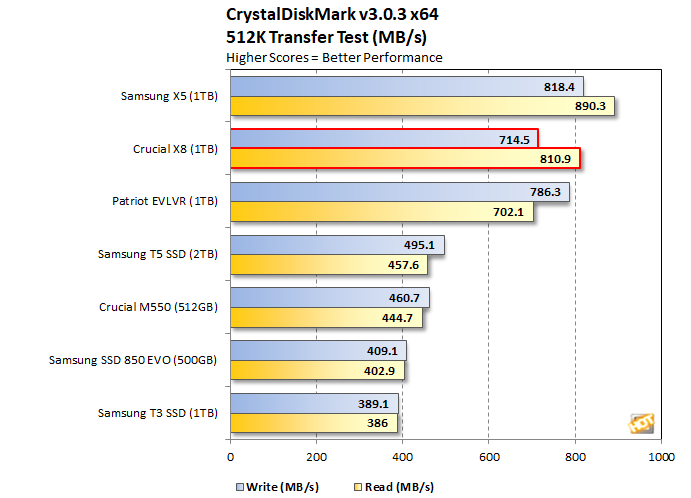
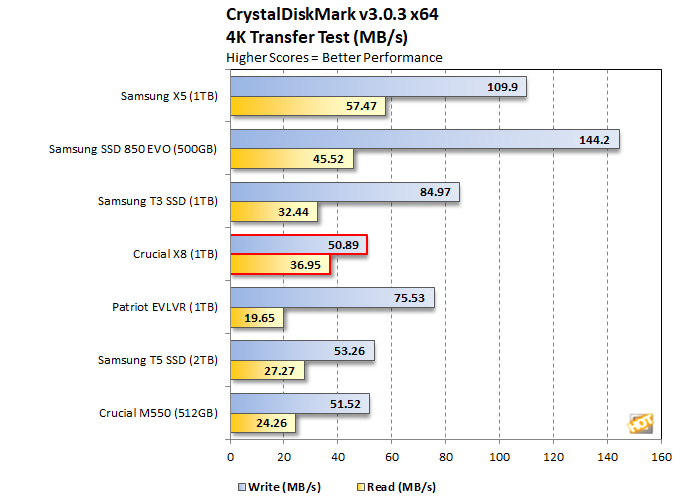
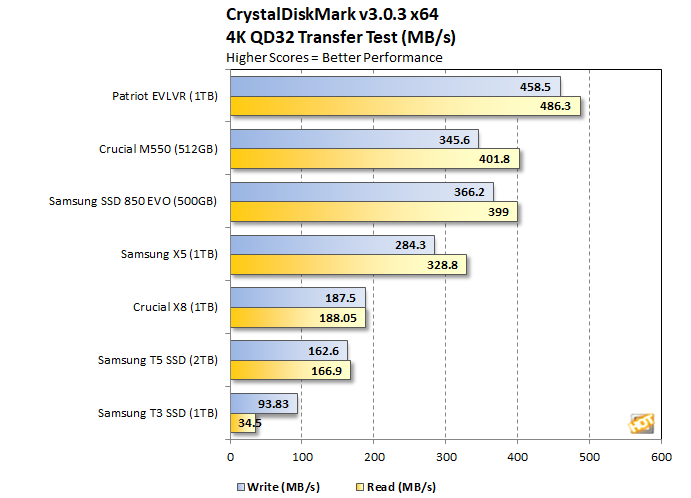
Crucial X8 Portable SSD: The Verdict
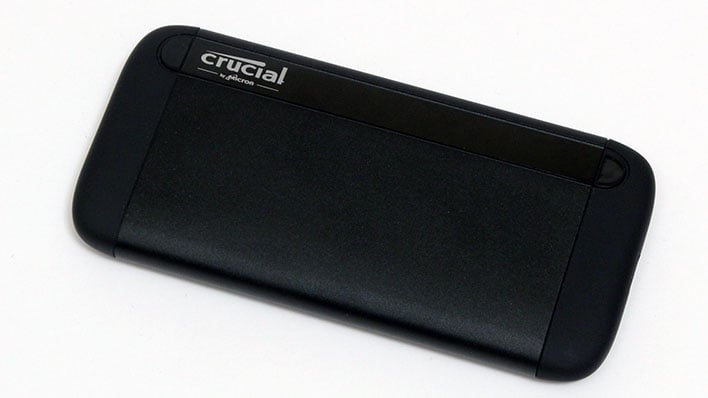
1TB Crucial X8 Portable SSD -- Find Them At Amazon
The Crucial X8 portable SSD is currently available in two capacities, a 1TB model, with a $164.95 MSRP, and there's a 512GB model available for $120.99. At this point in time, there is no larger 2TB option, but we expect to see one hit the market at some point. Regardless, the 1TB model is definitely a better value, from a cost per GiB perspective.
You need the necessary ports and connectivity to get the most out of the Crucial X8 portable SSD, but if you do have a system with either USB 3.1 Gen2 or Thunderbolt 3, then it's a no brainier. The Crucial X8 is roughly the same price as many other well-known external drives on the market, but it offers nearly double the read and write performance of many of its competitors. On top of that, the drive comes in a sleek and durable enclosure that is shock, temperature and vibration resistant. It's also strong enough to sustain a fall from just over 7 feet and not compromise your data. During our testing we didn't intentionally drop the X8 from quite that high, but we did drop it a few times from about 4 feet without incident.
Regardless, if you need a reliable, durable, high-capacity solid state external drive for content creation project storage, or an ultra fast portable solution for gaming, the Crucial X8 has you covered, and at a competitive price.

 |
 |
|
|

